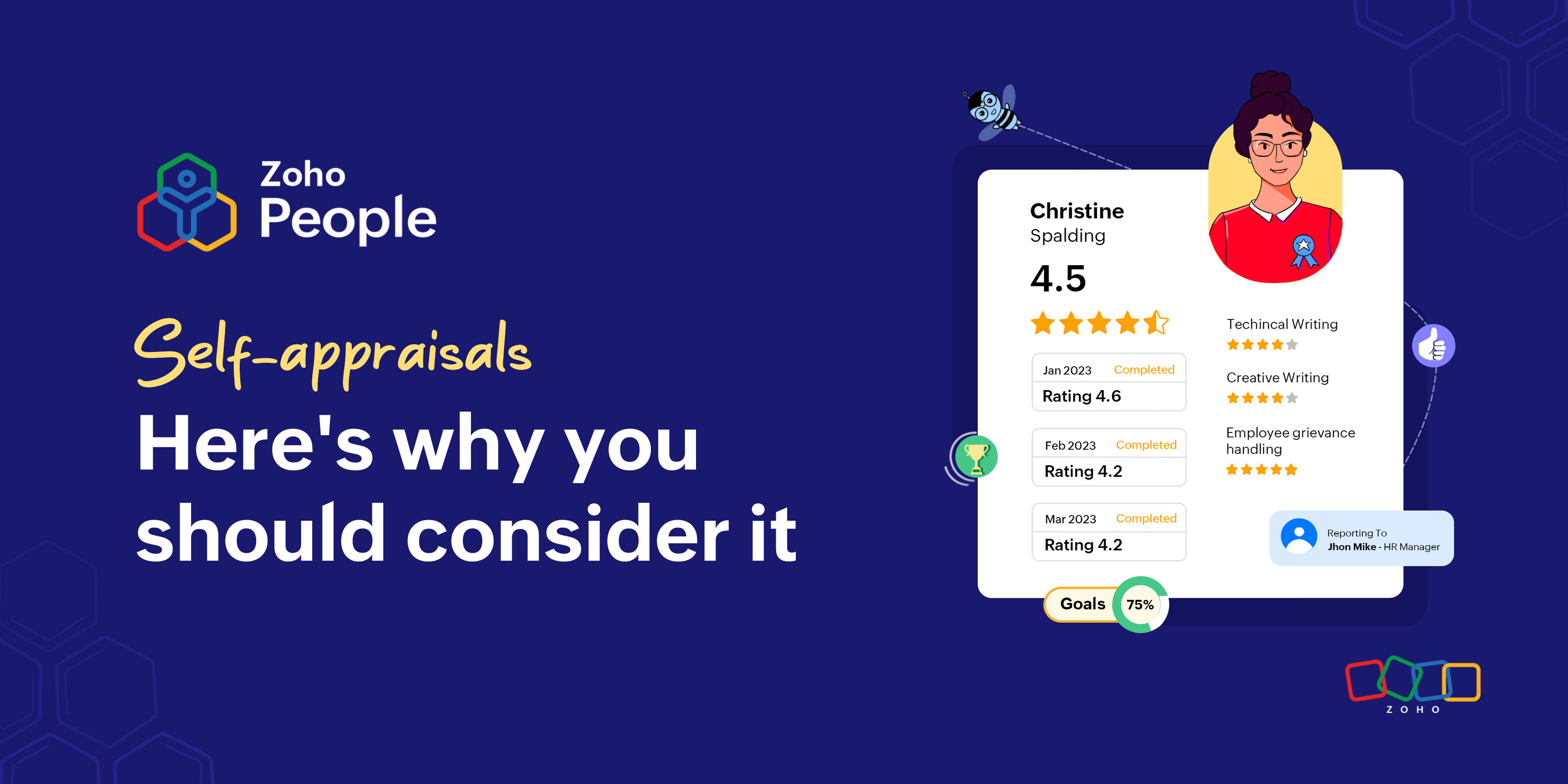- HOME
- Performance and Culture
- Everything you need to know about self-appraisals
Everything you need to know about self-appraisals
- Last Updated : January 8, 2026
- 2.5K Views
- 3 Min Read

Performance appraisals help you evaluate each employee's efforts and guide them more effectively. The process itself involves several stages, including setting goals, tracking employee progress, finalizing hikes, and exchanging feedback. One of the most crucial stages that organizations sometimes miss is conducting self-appraisals. These can offer substantial insights that take your employee's performance to the next level. But what are self-appraisals? How can they benefit your organization? How can you run self-appraisals in a way that benefits your organization and its employees? Read on to get all your questions about self-appraisals answered.
What are self-appraisals?
Self-appraisals, also known as self-evaluations or self-assessments, empower employees to assess their performance and identify their strengths and weaknesses. During the process, employees reflect on their key responsibilities, goals, and accomplishments, and they express their perception of how they've progressed throughout the year.
What are the benefits of running self-appraisals?
Incorporating self-appraisals can make the entire performance evaluation process more fair and useful to your employees. Here are a few benefits of running self-appraisals:
Provides additional insights
Sometimes, managers may miss a particular employee accomplishment or even misunderstand certain performance instances. Self-appraisals bridge the gap through useful performance insights from employees that help managers be more fair and transparent. Understanding how employees perceive their performance can also allow managers to offer more meaningful feedback, leading to more healthy work relationships.
Keeps employees engaged
Without self-appraisals, employees may feel sidelined in their performance evaluation process. They help employees take an active role and reiterate that their voice is crucial in enabling meaningful performance reviews. They also open two-way communication, allowing both employees and managers to offer their perspectives. This can go a long way toward keeping employees engaged.
Elevates employee performance
Since employees have a crucial role to play in their performance evaluation, they'll become more accountable and motivated. The self-appraisal process will give them a clearer understanding of what needs improvement so they can better work towards their goals.
How can you run self-appraisals?
Here's how you run self-appraisals in the best possible way for your employees:
Create a standard self-appraisal template
Before you kickstart the process, develop a standard self-appraisal template that'll help you receive the necessary input from your employees. Have a clear idea of what you are looking to receive from your employees. Sometimes, you'd want to know about the additional responsibilities or new initiatives that they undertook. Sometimes, you'd want to know what skills they think they lack, or how they handled a difficult situation. Have a word with managers and understand what they want to know. In general, provide an opportunity for your employees to clarify their key responsibilities, goals, and accomplishments. Let them rate their performance and provide examples to clarify their scores. Encourage them to include numbers and specific results so that nothing seems vague.
Keep employees informed
Notify employees about the upcoming self-evaluation at least a month in advance so that they can be prepared and mention the period for which they are evaluated. Explain the rating scales that you've used in your self-evaluation questionnaires to prevent misunderstandings. Provide ample time to complete the evaluation, as employees will need time to reflect and write. Be sure to let them know how their input will be used during the performance review. Lastly, reassure them that their weaknesses would be used to improve their growth and not to criticize them. This will help them be honest.
Use them wisely
Pass on employee input to the reviewers before the performance review. Encourage them to draft their feedback in a way that provides a clear idea of how your employees can build on their strengths and overcome their weaknesses. Then, help employees set clear goals that steer them in the right direction and ensure they better contribute towards organizational success in the upcoming performance period. Assign suitable training programs and projects based on your employees' strengths and weaknesses.
Self-reviews in Zoho People
In Zoho People, our intuitive HR software enables teams to conduct self-reviews as part of their performance appraisals. While creating an appraisal cycle, you can enable self-reviews, attach a self-evaluation template, and specify the deadline to complete the same. Once this is done, your employees will be able to fill out their self-evaluation form and submit it, which can later be accessed by reviewers during the performance review.
 Tarika
TarikaContent Specialist at Zoho People


